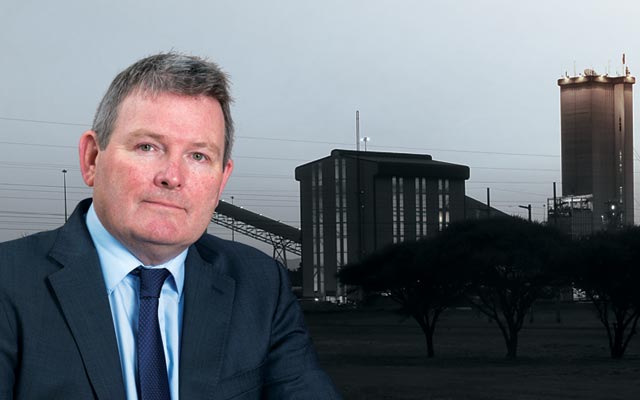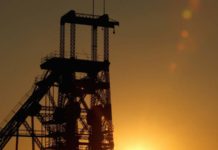
NORTHAM Platinum may consider other forms of shareholder returns after posting record full-year numbers today, the company’s CEO said in the firm’s annual review.
Paul Dunne said in the review “… all options for returning value to shareholders are now open to us and the board will continue to review this over time”.
Dunne later said in a call with media that the company would take a decision on its capital allocation plans in six months after taking in market developments and the return “to a semblance of normality” following Covid-19 lockdowns. “The critical time is the next six months. You can expect to see some action in that time,” he said.
Previously, Northam has used any free cash to buy preference shares in Zambezi Platinum, a JSE-listed company it helped create as part of its empowerment obligations.
Post the year-end Northam, held a 46.7% stake in Zambezi Platinum whose preference shares are backed by Northam shares. In buying Zambezi preference shares, Northam reduces its shares in issue and boosts share earnings.
The preference shares, issued to empowerment groupings, carry a 10-year lock-in which ends in 2025. At that point, preference share holders can make redemptions in cash or in Northam shares. Northam also undertook to fund any shortfall should there be a difference in the value payable to preference shareholders and Northam shares held.
Dunne has defended the purchase of Zambezi Platinum preference shares saying it’s as good as a capital return. He added today that the “structure had been derisked” given the firm owned nearly half of the preference shares. Northam shares were also trading above the level at which they were priced when the Zambezi preference shares were created.
CASH FLOW
As flagged in an August 12 trading statement, Northam produced record financial numbers and near record platinum group metal (PGM) production. Normalised headline earnings for the 12 months ended June were 150% higher year-on-year at R3.4bn. Share earnings increased more than 100% to 676.3 cents.
The stellar improvement was owing to rhodium and palladium prices which increased 170% and 52.4% respectively. Dunne told analysts today that rhodium “… could be the metal of the decade … A cleaner, greener world needs PGMs and rhodium has the strongest fundamentals,” he said.
Platinum, which accounts for 60% of Northam’s production, however, was “the laggard”, said Dunne. It averaged $858/oz, slightly above last year’s average and represented only 28% of the basket price received by Northam during the year. However, price appreciation would trigger another quantum leap in sales.
Overall, there was a 67.3% increase to R17.8bn in sales revenue owing to a 60.8% rise in the 4E basket price for $1,764/oz which was then additionally assisted by a 10.9% weakening in the rand against the dollar during the year.
The outcome was free cash flow generation of R4bn for the 12 months. A total of R3.7bn was spent buying approximately 49.4 million Zambezi preference shares. Post the year-end a further R1.7bn was spent buying Zambezi preference shares. Net debt was “contained” at R3.3bn with project capital in its Booysendal South project sunk. (Booysendal has an unredeemed capital amount of about R5bn against which income can be set over the next 12 month period).
The company lost about 108,000 ounces in PGM production owing to Covid-19 interruptions. Had that production not been affected, Northam would have reported record output. Refined metal sales for the 12 months totalled 560,238 oz 4E.
Northam has a medium-term growth target of some one million oz of PGMs. For the next year, however, it guided to production of 670,000 oz 4E – slightly lower than planned owing to the phased restart this year under Covid-19 limitations.
The company also said it had delayed capital growth projects. The Western extension access project at its Zondereinde mine has been partially suspended, whilst the deepening project is being temporarily limited to currently accessed mining levels. Certain modules of the Booysendal South project were also postponed “for the time being”.
Capital expenditure has been forecast for the 2021 and 2022 financial years at between R2.3bn and R2.5bn which compares to a capital outlay of R2.4bn in the year under review.








